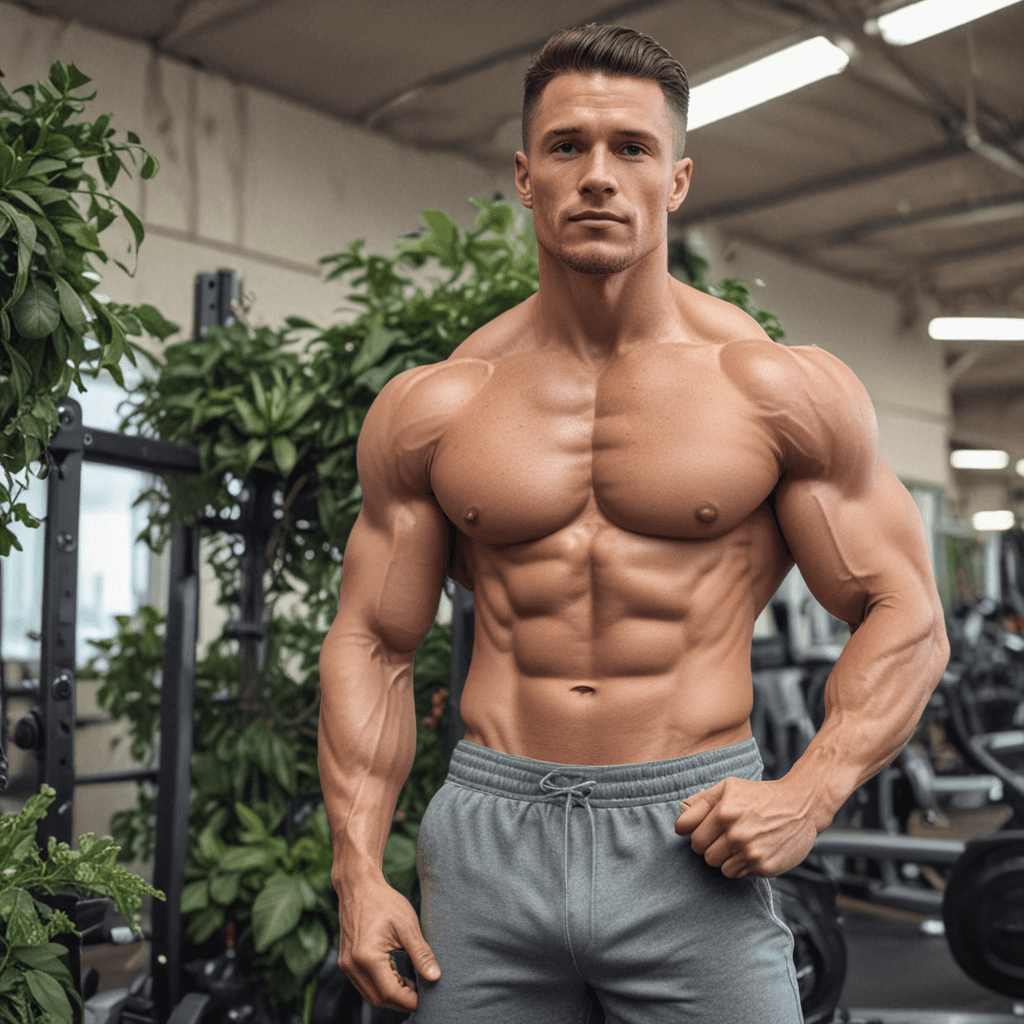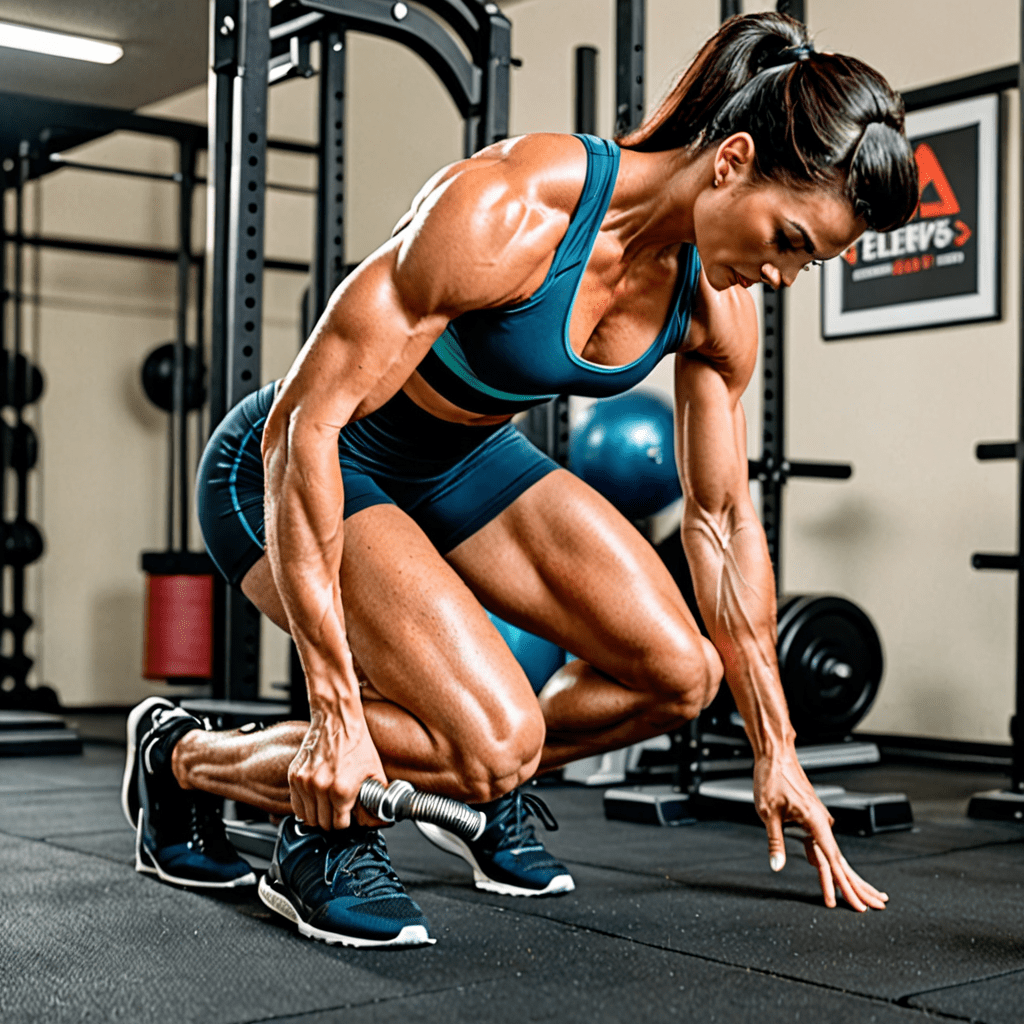
1. Introduction to Veganism and Muscle Building
Embracing a vegan lifestyle does not preclude individuals from building lean muscle mass. Veganism, characterized by the exclusion of animal products, offers a rich array of plant-based foods that provide the essential nutrients required for muscle growth and recovery. Contrary to misconceptions, a plant-based diet can effectively support the pursuit of muscular development.
2. Nutritional Needs for Muscle Growth on a Plant-Based Diet
Muscle building on a vegan diet necessitates a comprehensive understanding of nutritional requirements. Macronutrients such as protein, carbohydrates, and fats play crucial roles in muscle synthesis and recovery. Additionally, micronutrients, including vitamins and minerals, are indispensable for optimal muscle function. Vegans must pay particular attention to obtaining adequate amounts of these nutrients from plant-based sources.
3. Protein Considerations: Sources, Quantity, and Quality
Protein serves as the building block of muscle tissue. Plant-based sources of protein include legumes, tofu, tempeh, seitan, nuts, seeds, and whole grains. While plant-based proteins are generally lower in certain essential amino acids compared to animal-based proteins, combining various plant-based protein sources can ensure a complete amino acid profile. The recommended daily protein intake for muscle growth on a vegan diet is typically higher than for omnivores, ranging from 1.6 to 2.2 grams per kilogram of body weight.
4. Carbohydrate Requirements: Energy Fuel for Muscle Synthesis
Carbohydrates provide the energy necessary for intense workouts and muscle recovery. Complex carbohydrates, such as brown rice, quinoa, whole-wheat bread, and fruits, should form the cornerstone of a vegan diet for muscle building. These carbohydrates release energy gradually, sustaining blood sugar levels and preventing energy crashes. Adequate carbohydrate intake is crucial for optimizing muscle glycogen stores, which serve as the primary energy source during exercise.
5. Healthy Fats: Essentials for Hormone Production and Recovery
Healthy fats play a multifaceted role in vegan muscle building. They contribute to hormone production, cell signaling, and the absorption of fat-soluble vitamins. Sources of healthy fats include avocados, nuts, seeds, olive oil, and coconut oil. Incorporating these fats into the diet supports optimal testosterone production, which is essential for muscle growth, and aids in muscle recovery after training.
6. Micronutrients: The Vital Vitamins and Minerals for Muscle Growth
Micronutrients, including vitamins and minerals, are indispensable for optimal muscle function. Iron is essential for oxygen transport to muscles, while calcium supports bone health and muscle contraction. Vitamin D aids in calcium absorption and muscle recovery. Plant-based sources of these micronutrients include fortified plant-based milk, leafy green vegetables, and beans. Vegans should consider supplementation to ensure adequate intake of essential micronutrients.
7. Meal Planning Strategies for Optimal Results
Meal planning is crucial for vegans seeking to build lean muscle mass. It ensures a balanced intake of macronutrients and micronutrients. Focus on consuming whole, unprocessed plant-based foods that are rich in protein, carbohydrates, and healthy fats. Include a variety of fruits, vegetables, legumes, whole grains, and nuts in your meals. Meal prepping can help save time and ensure you have nutritious meals readily available.
8. Supplement Considerations for Enhanced Performance
Supplements can complement a well-planned vegan diet for muscle building. Creatine monohydrate is a widely used supplement that has been shown to enhance muscle strength and power. Plant-based protein powders can be a convenient way to increase protein intake. Other supplements, such as BCAAs and beta-alanine, may also provide additional benefits. Consult with a healthcare professional before taking any supplements.
9. Training Regimens for Efficient Muscle Building
Resistance training is essential for stimulating muscle growth. Focus on compound exercises that work multiple muscle groups simultaneously, such as squats, deadlifts, bench press, and pull-ups. Aim for 8-12 repetitions per set with a weight that challenges you while maintaining good form. Rest adequately between sets to allow for muscle recovery. Incorporate progressive overload by gradually increasing weight or resistance over time to continue challenging your muscles.
10. Recovery and Lifestyle Factors: Sleep, Hydration, and Stress Management
Adequate sleep, hydration, and stress management are crucial for muscle recovery and growth. Aim for 7-9 hours of quality sleep each night to facilitate muscle repair and hormone production. Maintain optimal hydration by drinking plenty of water throughout the day. Engage in stress-reducing activities such as yoga, meditation, or spending time in nature to minimize cortisol levels, which can interfere with muscle recovery.
FAQ
Q: Can vegans build as much muscle as non-vegans?
A: Yes, with proper planning and execution, vegans can build lean muscle mass comparable to non-vegans.
Q: What are some good plant-based sources of protein?
A: Plant-based protein sources include legumes, tofu, tempeh, seitan, nuts, seeds, and whole grains.
Q: Do vegans need to take supplements to build muscle?
A: While a well-planned vegan diet can provide the necessary nutrients, some vegans may consider supplements such as creatine monohydrate or plant-based protein powders to enhance performance.
Q: How often should vegans strength train?
A: Aim for 2-3 resistance training sessions per week, focusing on compound exercises and progressive overload.
Q: Is it harder to build muscle on a vegan diet?
A: Building muscle on a vegan diet requires more planning and consideration but is not inherently more difficult than on a non-vegan diet.

